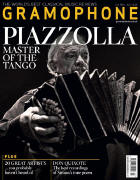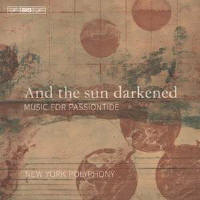Texte paru dans: / Appeared in: |
|
|
Outil de traduction (Très approximatif) |
|
|
Reviewer:
Alexandra Coghlan There’s a deliberately unshowy quality to the Grammy-nominated quartet’s performances, which prioritise blend and pacing above obvious drama, that’s well suited to Compère’s contemplative Hours of the Cross. The 20-minute work takes us from prayer into the narrative of the Crucifixion – divided, hour by hour, into episodes including Pilate’s judgement, the earthquake and the entombment. There’s nothing as literal as word-painting in a work that moves fluidly between gently imitative counterpoint and homophony, but in this deft performance we feel the weight of the inert body removed from the Cross in the suddenly slow-moving parts, the shouts of the crowd in the hard consonants of ‘Crucifige’. In many ways the Compère is a Renaissance mirror to Andrew Smith’s Salme 55. The psalm-setting (adapted from incidental music to the Gesualdo-play Notes from a Requiem) has the same abstraction and meditative flow. Four discrete sections grow from the hypnotic opening plea ‘Exaudi’, sustained in lulling waves of supporting voices while above a single voice intones a fauxbourdon-style chant melody. There’s more than a hint of David Lang here in the carefully layered texture and astute deployment of dissonance. Surrounding these larger works are further motets by Josquin and Willaert (whose more Italiante Pater noster and Ave Maria offer an appealing freshness after the austerity of the Compère) as well as Cyrillus Kreek’s attractive setting of Psalm 22. The penitential text, pleading for deliverance, lands piercing and plangent in Kreek’s writing, heavily inflected with Estonian folk music, with echoes of organum and Romantic part-songs also discernible. |
|




